Plenary Speakers
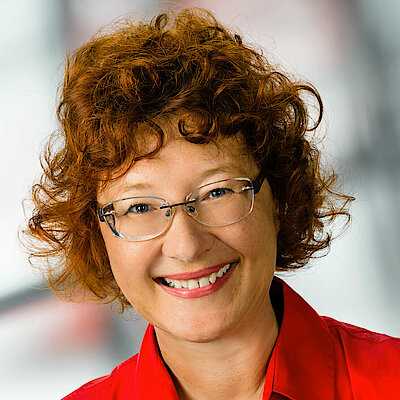
Prof. Dr. Ille C. Gebeshuber: "Learning from cicadas: Bioinspired functional structures against multiresistent bacteria"
TU Wien, AT
Prof. Ille C. Gebeshuber is a University Professor of Physics from Austria, Europe. She is expert in Nanotechnology, Biomimetics and Tribology. She was born on April 10, 1969, in the small city Kindberg. On the school bus, when she wrote a message on the window to a friend who was outside, she discovered that - a natural lefthander - she can write in mirror. She uses this ability to stimulate the right side of her brain and thereby her creativity and cross-border thinking. This has had major influence on her scholarly development and achievements - unlike most other physicists and engineers her approach to science is wide and holistic, and inherently trans- and interdisciplinary, bridging over to biology, the arts and the social sciences. 2017 she was elected 'Austrian of the Year' in the category 'Research'.
From 2008 until 2015 she was living and working in Malaysia, since 2016 she is back at her home institution, the Vienna University of Technology. Prof. Ille is associate editor in chief of the Journal of Bionic Engineering, associate editor of the IMechE Journal of Mechanical Engineering Science (SAGE Publishing, London, UK), editorial board member of various scientific journals, author of two books on biomimetics and nanotechnology and editor of a book on biomimetics by Springer Scientific Publishing. Since 2011 she has been scientific advisory board member regarding nanotechnology for the Lifeboat Foundation, a US American think tank safeguarding humanity. Her research interests comprise the use of nanotechnology and biomimetics to address global challenges for humankind.
Prof. Ille C. Gebeshuber serves on various international strategy boards. She has been acting as reviewer and advisor for agencies, universities, research institutions and public bodies. Prof. Ille is doing extensive public science outreach work and her professional activities are widely covered in the media. She loves to go on rainforest expeditions with her students, who come from different cultures and different fields (Europe & Asia, physics, engineering, biology, veterinary medicine, applied arts, fine arts).
Her research interests are located at the interface of biology, engineering and the arts, systems thinking and nanotechnology. She has experience in various expert panels, including the Science Advisory Board (Arlington, USA), the Strategy Board of the Austrian Center of Competence for Tribology (Wiener Neustadt, Austria), QS and THES University Rankings and the ISESCO Expert Panel on Nanotechnology.
Prof. L. Mahadevan: "Shape in the digital age: forward and inverse problems"
Harvard University Cambridge, Massachusetts, US
Prof. L. Mahadevan was born in India and educated there through college. He then moved to the USA for graduate school, eventually getting his PhD at Stanford University. He started his independent career at MIT, and was then the inaugural Schlumberger Chair in Complex Physical Systems at Cambridge University and a Professorial Fellow at Trinity, before coming to Harvard University, where he has been since 2003 as the de Valpine Professor of Applied Mathematics, Physics and Organismic and Evolutionary Biology.
His work attempts to understand motion and matter at the observable scale of ‘middle earth’, a playground of rich phenomena that are easy to observe, yet not always easy to explain. Areas of interest include the patterns of shape and flow of inanimate matter on scales ranging from the supramolecular to the planetary, and the dynamics of sentient living matter that can self-organize, perceive and act. In all cases, the aim is to get at a qualitative understanding using quantitative methods, and get at general principles, if there be such, from answers to specific questions. His publications range over such subjects as the shape and flow of fluids and soft materials, the morphogenesis of cells and organs, the movements of plants and animals, and the physiology and behaviour of organisms at both the individual and collective level.
His work has been recognized by awards that include fellowships from the Guggenheim Foundation (2006-07), the Radcliffe Institute (2014-15), the Simons Foundation (2021- present) and visiting professorships at Oxford, Ecole Normale Superieure (Paris), Berkeley and MIT. He is a MacArthur Fellow (USA) and a Fellow of the Royal Society (of London).
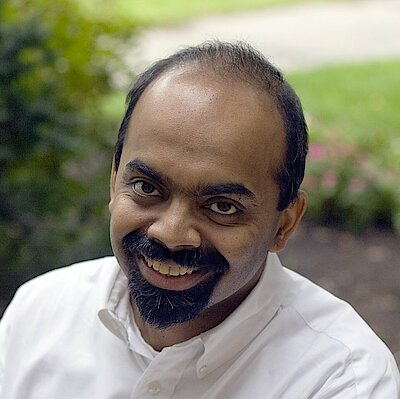
Invited Speakers
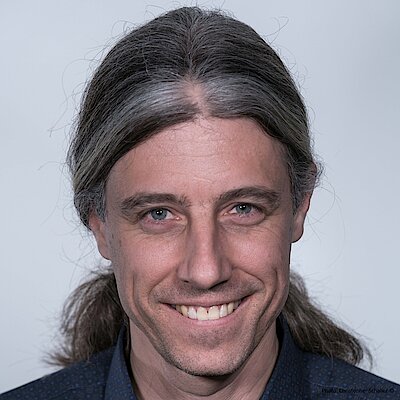
Prof. Nico Bruns: "Bio-Inspired Amphiphilic Polymer Materials and Nanosystems"
Technische Universität Darmstadt, GER
Prof. Nico Bruns research interests are bio-inspired polymer nanosystems and materials, biocatalysis in polymer chemistry and sustainable polymer chemistry. He studied chemistry at the Universities of Freiburg (Germany) and Edinburgh (UK) and graduated with a PhD in macromolecular chemistry from the University of Freiburg under the supervision of Prof. Rolf Mülhaupt and Prof. Joerg C. Tiller in 2007. After a postdoc in the biotechnology group of Prof. Douglas S. Clark at the University of California, Berkeley, he joined the University of Basel in Switzerland where he received the Venia Docendi for Chemistry in 2014. From 2013 to 2018 he was Associate Professor of Macromolecular Chemistry at the Adolphe Merkle Institute of the University of Fribourg, funded by a prestigious Swiss National Science Foundation Professorship. He then joined the Department of Pure and Applied Chemistry of the University of Strathclyde as full professor in 2018.
Prof. Po-Yu Chen: "Learning from Nature: Lightweight, Strong & Tough Materials Inspired from Nature and Optimized by A.I."
National Tsing Hua University Materials Science & Engineering, Hsinchu City, TWN
Prof. Po-Yu Chen is a Professor and the Vice Chair of the Department of Materials Science & Engineering at National Tsing Hua University in Taiwan. He received M.S. and Ph.D. degrees in Materials Science from the University of California, San Diego in 2005 and 2009. His research interests include multi-scale characterization of biological materials, synthesis of bio-inspired composites and scaffolds, surface science and technologies, biomineralization, biomechanics and recently modeling and A.I.-assisted approaches to design novel structural materials and composites. He was awarded the 2018 MRS-Taiwan Young Researcher Award, 2018 TVS Young Researcher Award, 2017 AEPSE Young Scientist Award, 2016 Ta-You Wu Memorial Award, 2013 TMS Young Leader Award, 2013 TACT Young Researcher Award, 2011 MSEC Young Researcher Award, and 2011 ASME Emerging Researcher in Biomedical Engineering. He is the author of highly cited journal papers and a book “Biological Materials Science” and actively serves as organizer, session chair, committee member of international societies and conferences (TMS, MRS, ACerS), as well as editor and editorial board member of several SCI journals (Journal of Materials Research and Technology, Journal of Mechanical Behavior of Biomedical Materials, Bioinspired, Biomimetic, and Nanobiomaterials, and Polymers).
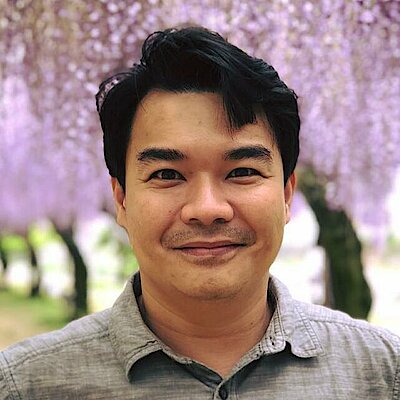
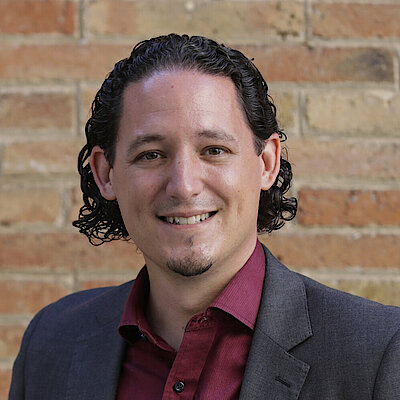
Prof. Dr. Rubén D. Costa: "Bio-hybrid Light-emitting Diodes"
Technical University of Munich, GER
Prof. Costa (*1983) research goes from the design and preparation of bio-hybrid materials to the fabrication and optimization of optoelectronic devices for energy (lighting/photovoltaic) and medical (sensing/therapy) applications. The long-term goal is to progress optoelectronics fulfilling the green photonics concept.
Prof. Costa got his B.Sc/M.Sc in Chemistry from the U. Valencia (Spain) in 2006. His Ph.D. was performed at the U. Valencia (IcMol) where he graduated in 2010, obtaining several national and international awards. From 2011 to 2013, he was Humboldt Fellow at the U. Erlangen-Nuremberg (FAU) working on nanocarbon-based solar cells. In 2014, he became a Liebig Fellow heading the Hybrid Optoelectronic Materials and Devices Lab at FAU. In 2017, he moved his group at IMDEA Materials (Spain) and he further expanded it to the U. Waseda (Japan) as Associate Professor in 2018. His academic achievements include >130 scientific contributions and >30 awards/fellowships. Since 2020, Prof. Costa became full Professor for Biogenic Functional Materials at the TUM.
Prof. Maria Helena Godinho: "Bioinspired materials from cellulose anisotropic structures"
Department of Materials Science and I3N/CENIMAT, Universidade NOVA de Lisboa, PT
Prof. Maria Helena Godinho is an Associated Professor with Habilitation at the Materials Science Department at NOVA University of Lisbon and a researcher at the Associated Laboratory CENIMAT/i3N (Group: Soft and Biofunctional Materials Group (SBMG)). She has a D.Sc, PhD and MSc degrees in Materials Science from Faculdade de Ciências e Tecnologia/NOVA University and a graduation in Chemical Engineering from Instituto Superior Técnico, University of Lisbon. She was a Nato/Invotan fellow at the Laboratoire de Physique de la Matière Condensée at Nice University in France.
She was Vice-President of the International Liquid Crystal Society (ILCS) (election 2016 until 2020), head of SBMG (2016-2020) and Vice-director of the Research Centre in Materials Science (CENIMAT/I3N) (2016-2020) Faculty of Science and Technology of New University of Lisbon (FCT/NOVA).
Awarded the “Frederiks medal” in 2019 (field of Liquid Crystals Chemistry), by Russian Liquid Crystal Society “Sodruzhestvo”. Invited overseas lecturer by the British Liquid Crystal Society (2016).
Her research is focused on several aspects of the molecular, mesoscopic (nano and micro scale) and macroscopic properties and behavior of soft materials and complex fluids, mainly cellulose-based biomimetics and liquid. crystals. In addition, she is interested in the modification, preparation and characterization of cellulose micro/nano rods. Using cellulose-based macromolecules and cellulose nano rods she is much involved in the study of their self-assembling and resulting photonic properties. Maria Helena Godinho is also concerned with cellulose-based biomimetics and their applications. The development of liquid crystal-based light shutter sensors, which can be used as smart windows or dynamic scattering layers for solar cells is also among her interests.
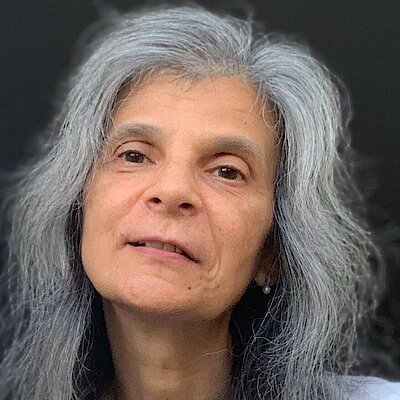
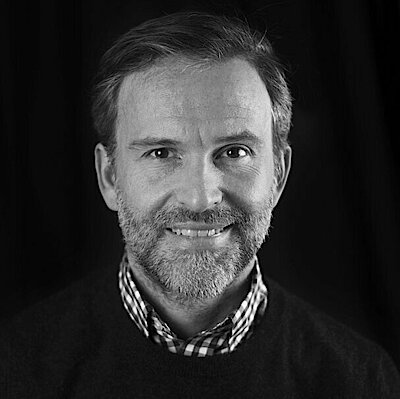
Prof. Dr. Brook S. Kennedy: "Fog Harps: Bioinspired Material Systems for Collecting Atmospheric Water"
Department of Industrial Design, Virginia Polytechnic Institute and State University, USA & Co-Founder, BioDesign Research Group
Brook Kennedy is an Associate Professor in the department of Industrial Design at the College of Architecture and Urban Studies at Virginia Tech where he is also Co-Founder of the BioDesign Research Group. His background spans award-winning professional design practice with academic research in biologically-inspired materials and processes. He was educated at Reed College and Stanford University where he earned a terminal degree in design. He was the recipient of the Red Dot Best of the Best and IDEA Gold Awards in 2011 and 2012 for his industry design work. Altogether he was awarded more than 20 design awards and 20 patents.
Kennedy is co-inventor of Fog Harp with collaborating partner Dr. Jonathan Boreyko. Fog Harp is a fog drip-inspired material system based on the design and fluidic behaviors of coniferous trees, notably California Redwoods. Widely published and covered on the BBC, the Washington Post, National Public Radio and PBS Newshour, it was also honored with a National Collegiate Inventors Finalist Award in 2019 and an IDEA Finalist Award in 2020. Kennedy is currently engaged with applied design research exploring renewable biomaterials and biomineralization.
Prof. Dr. Andreas Walther: "Bioinspired Self-Assembled Nanocomposites: From Adaptive Mechanics to Building Lasers"
Department Chemistry, University Mainz, GER
Prof. Andreas Walther is a Gutenberg Research Professor for Macromolecular Materials and Systems at the University of Mainz in Germany. His research interests concentrate on developing and understanding hierarchical and metabolic self-assembly concepts inside and outside equilibrium, and on using them to create bioinspired and life-inspired materials systems with the capacity for active, adaptive and autonomous behavior. A. Walther is a two times ERC grantee, a founding PI of the DFG Cluster livMatS, and a former Senior Fellow of the Freiburg and Strasbourg Institutes for Advanced Studies. He has published ca. 200 publications (h-index 61, ca. 14500 citations) and has been awarded the Bayer Early Excellence in Science Award (for Materials), the Reimund Stadler Young Investigator Award of the German Chemical Society, as well as the Hanwha-Total IUPAC Young Scientist Award awarded at the IUPAC World Polymer Congress.
Group Page: www.walther-group.com
Twitter: @WaltherLab
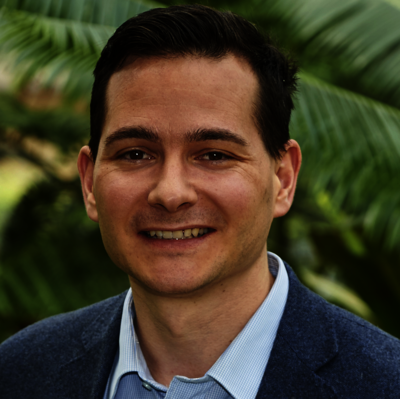
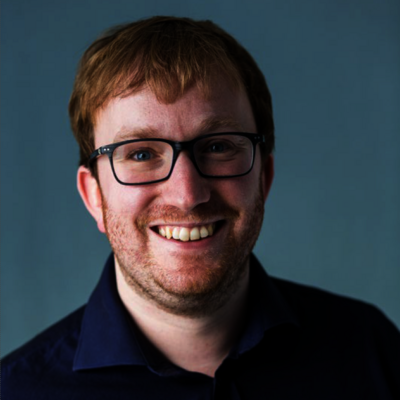
Prof. Dr. Bodo Wilts: "Colourful synergies of geometry and quasi-/order in biological photonic systems"
Paris Lodron University of Salzburg, AT
Prof. Wilts research is focussed on biological photonic structures in nature, in particular in understanding their design, function and development, and the preparation and characterisation of bio-inspired functional materials for sensing and light-related applications.
Prof. Wilts got his Diploma (German Msc-equivalent) in Physics from the University of Göttingen (Germany) in 2009. He then performed his PhD at the University of Groningen (the Netherlands), where he graduated cum laude (top 3%). in 2013. After a postdoc stay in the Cavendish Laboratory at the University of Cambridge (United Kingdom), he became a senior scientist and then group leader at the Adolphe Merkle Institute, University of Fribourg (Switzerland) with an SNSF Ambizione fellowship. In 2020, he finished his Habilitation in Experimental Physics at the University of Fribourg. His academic achievements include >90 scientific contributions. Since 2021, Prof. Wilts is full Professor for Materials Physics at the University of Salzburg.
BioINSP 2022
6th BioInspired Materials 21 - 24 March 2022 | Hybrid Conference in Kostenz (Germany) and online
BioINSP 2022
6th BioInspired Materials 21 - 24 March 2022 | Hybrid Conference in Kostenz (Germany) and online
Sign up for our newsletter
Subscribe to our newsletter for regular updates about materials science topics!
After subscribing, you will receive an email from us with a confirmation
link.
Only after clicking this link your registration is completed.

